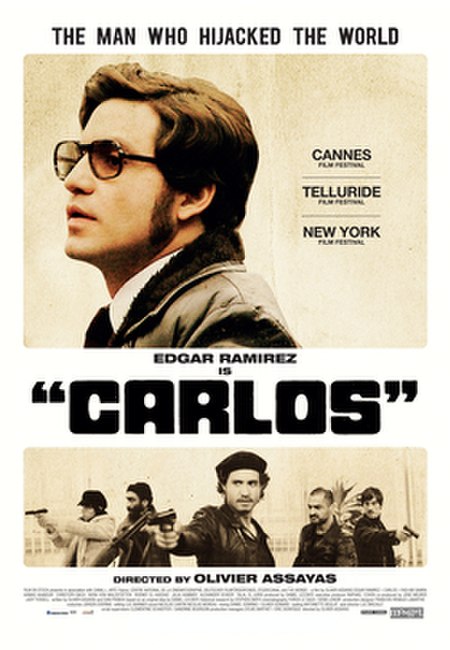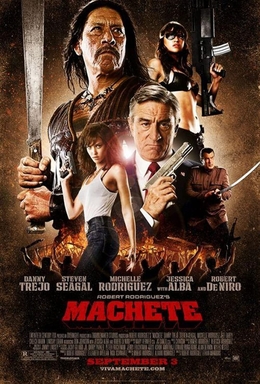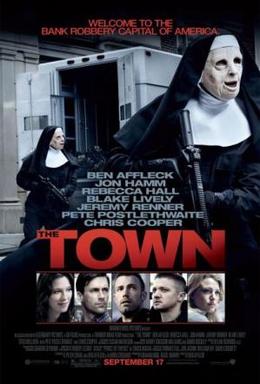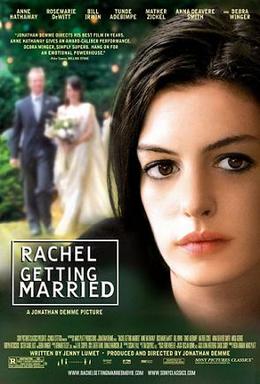
127 Hours (Danny Boyle, 2010): Stellar cinematography, a pulsing score, a great performance, a tight script, and based on a true story. What more can one ask for? But there is more. Like in Touching the Void (Kevin MacDonald, 2003), the end of the film evokes strong feelings of elevation. It is not nearly the same film as Into the Wild (Sean Penn, 2007) because this time the protagonist actually knows somethings. And who could guess that this film would end up being a critique of narcissism? "That scene" is done expertly. Nerve-shattering, literally.

The Social Network (David Fincher, 2010): The various networks, the class hierarchy, and then the invention of an addiction. I appreciated the technical accuracy of the putting together of FaceMash. "wget -A" in a mainstream film, for crying out loud! Justin Timberlake's performance was a breeze of fresh air, I thought. The protagonist is more a series of fumbling acts than a character. And where are the parents? I didn't want it to end, though.

Winter's Bone (Debra Granik, 2010): It is a vignette of life in a particular region. The story for me was secondary. It was the backdrop, the culture, the mise-en-scene which was far more enjoyable. Of course the main actress is a peach, and I loved the little sister. The story felt made-up though. The ending, too convenient. It was, once again, the small details of the film, which remain etched in my memory. A few examples: the way the little sister wakes up her brother in the beginning; the way the auctioneer speaks (by the way, the ne plus ultra of auction voices is in Herzog's Stroszek); the plopping down on the bed, with the baby in the middle, while visiting her friend. An experience.

Carlos (Olivier Assayas, 2010): A long take on an exceptional individual and on his relationships, with echoes of The Baader Meinhof Complex (Uli Eidel, 2008). The politicians are crafty, but human. The terrorist is an enigma. Deluded? Driven? Daring? I saw the long, 330 minutes full version.

Frozen River (Courtney Hunt, 2008): Ultimately a lesser film than Winter's Bone, I thought. It is meant to be a thriller, though. With a standout scene when she volunteers to surrender, this film didn't leave much of an imprint. The phone recording sequence was a stroke of genius while the baby episode seemed more like a trick.

The Company Men (John Wells, 2010): The CEOs and execs are people too! America will be great again. I almost expected Michael Bolton's When I'm back on my feet again in the end credits. What an angelic wife Rosemarie Dewitt's character is though. She seems to have read everything by John Gray.

Machete (Robert Rodrigues & Ethan Maniquis, 2010): Now here's a film for all you highbrow folks. The high point of the film: the vehicles groveling at the gates, towards the end. Amazingly bad. So bad it is good. Atrocious B-grade cinema at its best. You must have seen the trailer in the Grindhouse films.

The Town (Ben Affleck, 2010): An also-ran to Heat (Michael Mann, 1995). Ben Affleck acts only with his eyes, it seems. And that too, not too much. Too much botox on the face? One is supposed to empathize with these guys who terrorize others and rob banks because they came from bad neighborhoods. They are tough, see.

Greenberg (Noah Baumbach, 2010): A horror story, in a way. Essential viewing for all budding narcissists. Or for those who isolate themselves and wonder what is wrong with them. Sometimes cuts too close to the bone.

A Solitary Man (Brian Koppelman & David Levien, 2009): A tale of redemption, eh? Even the worst assholes have their reasons, no? If you have seen The Barbarian Invasions (Denys Arcand, 2003), you will know what I mean. But this is in some ways a more nuanced portrait of a man who has certain cynical views about the world. Interesting, in the end.

Wall Street 2 (Oliver Stone, 2010): Meh. Over-acted. Over-directed. Over-researched. Under-whelming.

Rachel Getting Married (Jonathan Demme, 2008): Some of the confrontations looked staged and contrived. But Anne Hathaway deserves all the accolades that she got for her acting. The drive back from her mother's place was done in a harrowing and realistic manner. Addiction is a problem, but what one does to one's life while addicted is a greater regret. The multicultural spectacle was well-done, I thought, though it must have confused Americans no end to hear names of Indian dishes spoken as if they are well-known.


9 comments:
In defense of Cassel's surprised reaction to the kiss, I took it as his excitement in regards to her finally coming out as a true dancer, not as some sexualized school-boy joy.
And you're dead-on about Greenberg. I recommend Noah Baumbach's other films for some excellent representations of the narcissistic personality.
-MM
BTW I meant Movement V in my capsule review of Black Swan.
http://www.youtube.com/watch?v=MwFgAxd1c-w
Movement VI is amazing as well.
http://www.youtube.com/watch?v=tJCHIy7PkhU
@mm: but his joy is not while she is dancing, but only after she runs to kiss him. i'd think it was for the kiss. :)
Yes, but don't forget what the kiss was set up to symbolize from their first "shared" kiss together.
Besides, he must have known that he could have had her at any point during the second half of the film (especially during the third act, when she was clearly hot for teacher). Instead, he was more interested in her becoming the Black Swan on stage.
I do agree that the final scenes of the movie were worth the price of admission alone.
I'll be checking out 127 Hours this weekend based on your intriguing review.
-MM
Don't you find Indian panorama of any interest?
@ravi: I do. But there are very few films these days in India which I would recommend (or would spend time to watch). I did enjoy Peepli Live (though it had its shortcomings) and recently I enjoyed the highly flawed and ancient "Albert Pinto ko Gussa kyon Aata Hae". Do you have any recommendations?
Harman,
You weren't joking about the critique of narcissism in 127 Hours. The main character's gradual self-awareness of his own narcissism was quite moving. If only we could all experience such a harrowing experience. Perhaps, then, we could overcome the epidemic that afflicts modern man.
-MM
I agree Harmanjit. Not many good Indian movies are made and those that are made are hardly available.
Few recent ones that I had liked are, Udaan, LSD, many Anurag Kashyap makes such as Gulaal, Dev D, No Smoking.
Few like Fatso!, Fired, Walkaway, Paan Singh Tomar, etc are not heard at all. No one would know when they were released even.
@MM: glad you liked the film.
@ravi: I have covered on my blog most of the wide release films that you list.
And frankly, I have also not heard of "Fatso!, Fired, Walkaway, Paan Singh Tomar". Will check them out.
Post a Comment